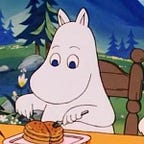To discover beauty
“I think May is the laziest of all the months.”
Sohn Won-pyung wrote in the Author’s Note section her novel, Almond:
I know this may be a clichéd conclusion to draw. But I have come to think that love is what makes a person human, as well as what makes a monster.
She didn’t explain what love is, or what it looks like in her perspective, but in the novel, two of her characters were talking about the hanja character for love, 愛.
“Do you even know what that character means?”
“Of course. Love.”
“What does love mean?”
“To discover beauty.”
It made me wonder, what does her main character, Yunjae, thinks of love?
As a young boy diagnosed with Alexithymia, Yunjae experiences trouble with identifying and describing his emotions. Growing up, his mother would teach him the basics: “When cars come close to you → Dodge or run away.”, “When others smile → Smile back.”, and the works.
Yunjae said he doesn’t even understand the feelings other people are experiencing. He wouldn’t be able to identify if a person is sad or disappointed or angry, even if those emotions are directed towards himself.
But if love is discovering beauty, what if he is unable to discover beauty in the first place?
This was how Yunjae described the month of May:
People say that May is the queen of seasons, but I don’t quite agree. The hardest job is transitioning from winter to spring. Frozen ground melting to let sprouts shoot up, colorful flowers blossoming from each dead branch. That’s what tough looks like. As for summer, it simply needs to take a couple more steps forward using the momentum of spring. That’s why I think May is the laziest of all the months. A month that’s overrated.
This pragmatic view of the seasons is a representation of how he sees most things in life. Although he sees things as they are and converses in a-matter-of-fact way, I believe Yunjae is still able to see the beauty around him.
In speaking about discovery, obviously, you can see things without even recognizing them. You can nitpick its form and colors, but you don’t always have to know what it is you are seeing. You can just simply be there and take it in. That counts for something, right?
Later in the book, he described:
A relaxing song is playing on the bus. People are dozing off. Spring passes by the bus window. Flowers are in bloom, whispering, Spring, spring, I am spring.
This shows that even though Yunjae still did not express his feelings towards the nice, spring day he was having, you and I could tell he was seeing the details. He was discovering the beauty around him.
Son Won-pyung also described the birth of her first child, a story I think is fit for all this beauty-discovering:
Four years ago in the spring, I gave birth to my baby. There are a few funny anecdotes about it, but they are not particularly emotional because I did not have a hard time giving birth. Everything just felt strange and new. But after a few days, whenever I caught sight of the baby wriggling in its cradle, I would automatically tear up. Even now, I still cannot explain why. My tears could not be explained by any single emotion.
I would also like to insert Maggie Smith’s poem, Good Bones:
Life is short, though I keep this from my children.
Life is short, and I’ve shortened mine
in a thousand delicious, ill-advised ways,
a thousand deliciously ill-advised ways
I’ll keep from my children. The world is at least
fifty percent terrible, and that’s a conservative
estimate, though I keep this from my children.
For every bird there is a stone thrown at a bird.
For every loved child, a child broken, bagged,
sunk in a lake. Life is short and the world
is at least half terrible, and for every kind
stranger, there is one who would break you,
though I keep this from my children. I am trying
to sell them the world. Any decent realtor,
walking you through a real shithole, chirps on
about good bones: This place could be beautiful,
right? You could make this place beautiful.
about good bones: This place could be beautiful,
right? You could make this place beautiful.
